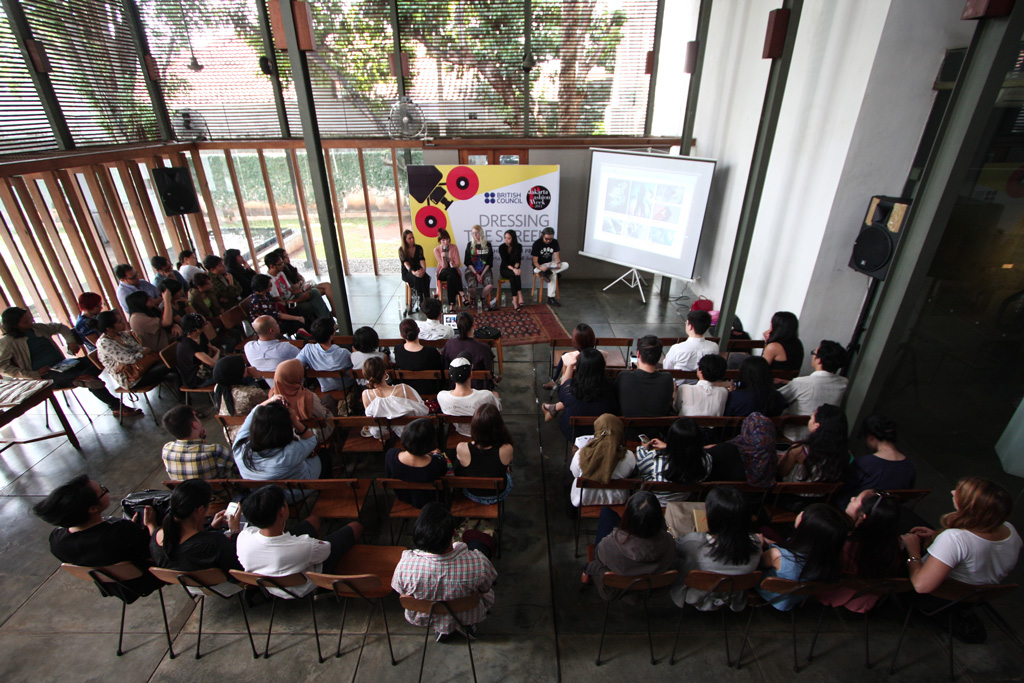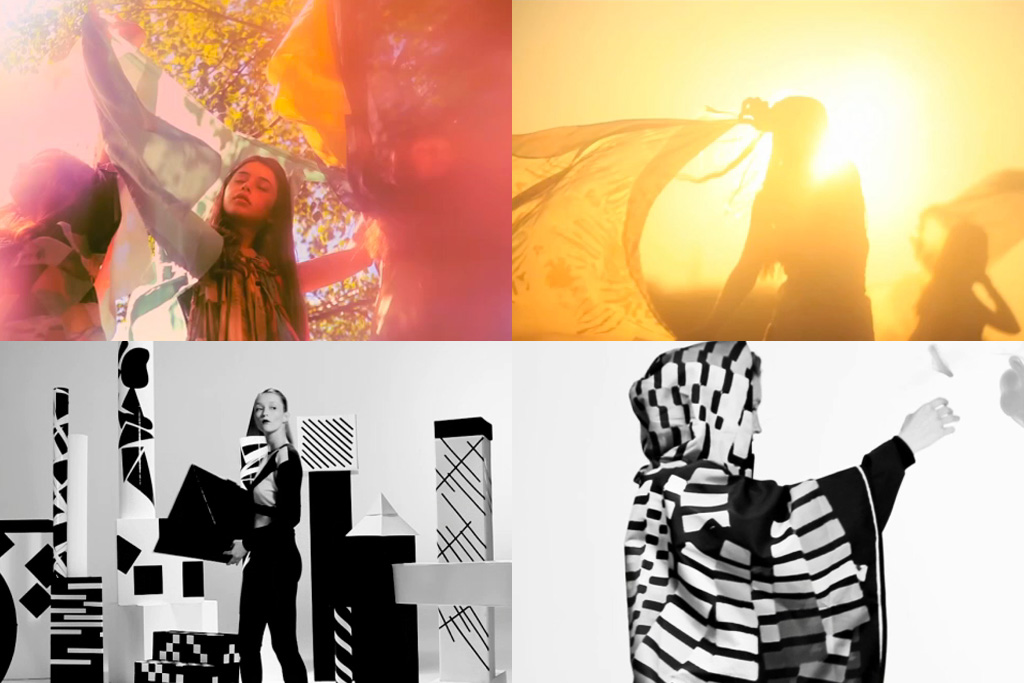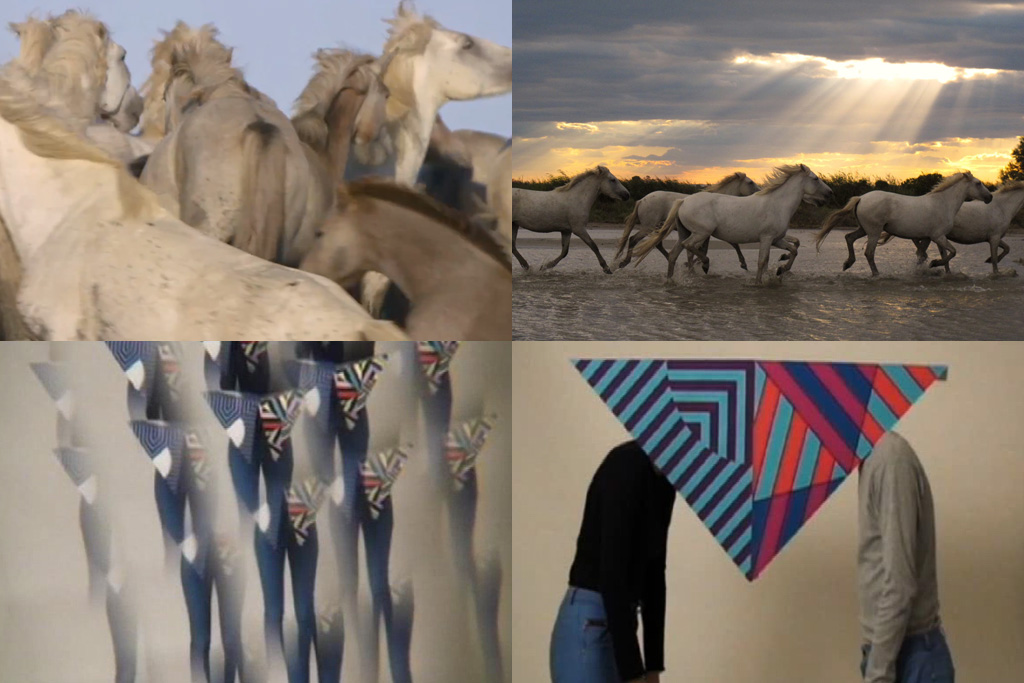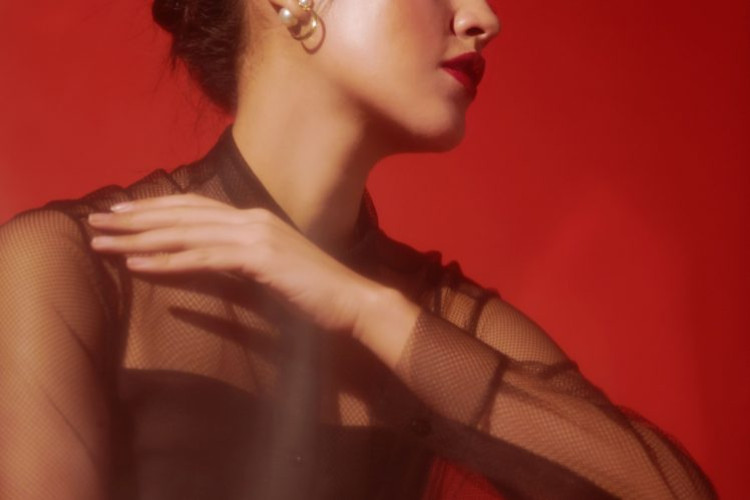Fashion Films and Feminism with Kathryn Ferguson
Athina Ibrahim (A) interviews fashion filmmaker Kathryn Ferguson (K)









A
You talked about fashion films being an emerging genre and you once mentioned wanting the genre to break down old ideas and explore new territories. Can you elaborate on your statement? What old ideas were you talking about?
K
I think it is the stereotypes of fashion imageries and the representation of women within the fashion industry that needs to be challenged. Fashion film seems to be a really good chance for young filmmakers, or any filmmaker, to explore new ways of showcasing and communicating fashion imagery, and with fashion film the main consumers are women. A lot of fashion – either for male and female, and I don’t mean in a patriarchal way – is shot through the male gaze in a way that has always been accepted.
Actually there have been many published articles and also so many seminars recently in the UK about how much fashion is affecting the body image and confidence of young girls. I feel as a woman and an image maker, I have a huge responsibility to be very conscious about what I am putting out there and try to be as vocal as I can in encouraging other men and women to actually be very conscious about what we encourage. As people look to fashion for inspiration – especially for how they were meant to lift themselves – we are talking about a very unhealthy body type, especially in the last couple of decades. That has always been the first thing I think about when I work. I don’t know if anyone else is thinking like that.
A
What do you think stemmed your value in presenting femininity in England?
K
When I started making fashion films, I was just excited to be experimenting with moving image. What really happened in the first couple of years of my career were very much just visual explorations where I was experimenting with ideas and aesthetics. I would only say in the last two to three years that I have really become very conscious. I have been very fortunate to receive really good commissions and some recognition because of my work. So when my films do go out and if people want to look at them, there is actually a message behind it. There is some integrity in it.
If I look back at a lot of my earlier work, I cringe quite a bit. But that is okay, it is just process. I think the feminist angle of what I do now is becoming noisier and noisier in my own career. It is something I’m finding myself becoming very vocal about.
A
Did any of it stem from personal experience?
K
I don’t know. I just read a lot and I’m very conscious of the effects that we’re having on young girls and it isn’t much my own personal experience. But I just think if I ever had a daughter, what sort of world would she be born into? And I just think I can take responsibility for my part. So at least I know what I’m putting out there is something I’m happy with and not compromising over.
A
How do you translate those values into the screen? Especially when you are collaborating with a different party?
K
Again I was just very delighted to get commissions to begin with. I was much more doing what I was expected to do. I think in the last year or so in particular, very much even for the Selfridges film that I showed today. They didn’t want a fashion film initially. I kind of sat down with the managing director of Selfridges and said, “I think you could do a lot more than that. You have a wonderful platform and these wonderful garments. You want them to be playing in your window in Oxford Street, there are huge opportunities to do something more.” They were really receptive and supportive. They were wonderful.
It is actually interesting because you go to all these meetings and meet women in the fashion industry, and when you start explaining why you feel the need to change perspective, you could just see light bulbs going on. Of course almost everyone thinks about this fashion imagery. But you need to go and push them to do it. These women are generally very receptive about it. It is, however, a risk especially for someone who doesn’t want to take on a critical angle in the work they present.
A
Talking about the aesthetics that you use in your films, I think a lot of your films uses a lot of themes and symbols, how do you translate that into a film?
K
That maybe is because of my Catholic upbringing. I think that it is this whole idea of ritual and repetition. I grew up with a very Catholic mother and a Protestant father in Belfast. My mother was very keen in wanting us to grow up being good Catholics and weekly rituals and symbolism within the mass really became quite ingrained.
When I was doing my masters at the Royal College of Art, I came to make my final piece, and I was really trying to work out what I was going to do and printed off stills of everything I made so far. What I ended up seeing is Catholicism in all of it, and I couldn’t believe it.
There was Mary, an ecclesiastical figure and a lot of usage of water in the stills. Then I just thought, “Oh my God,” this has been influencing everything without me even realizing it. That is when I decided to make “Máthair,” which is Irish for mother. It was very much a road trip with my mother around the pilgrimage sites of the west coast of Ireland. I made a documentary that I’m still trying to edit, but I recorded how she feels Catholicism has affected her and how it has been so ingrained in her.
I think I am very interested in ancient rituals and symbolism really. It is probably the spiritual part in me that is bleeding into my work and I do think a lot of it is a quite subconscious level.
A
Would you explore something else different from other your upbringing?
K
Oh yeah, it is tricky though. I am a bit worried about being overly voyeuristic. I would love to do a film about “modest dresses.” I would love to look at the Abaya in fashion and talk to women about it. But I don’t know if it is appropriate. I don’t know because that is not my history and I wouldn’t want to be someone who is Irish Catholic coming over suddenly making comments on this. But I would love to, so I don’t know. I think at the minute what I’m trying to do is definitely looking to what I know and of course I would like to go beyond it. But I’m trying to find my own visual language in what I do to start with, so at least I know that what I know is at least real and genuine. And then to take it elsewhere would be great.
A
With this idea you’re open to collaborations though?
K
I collaborate a lot. Probably collaborated in five films with other directors and working with other designer’s collaboration. I love working with other people. Filmmaking is a massive team project and I’m just one tiny part of it. I’m very conscious of that and I’m working with everyone and it’s a crew. I couldn’t do it on my own, so yeah, very open to collaborations.
You talked about the ease of social media in supporting fashion statements and how it helps in staying current with the new market. How do you manage the people you want to target especially when social media targets a wider audience?
That would be more of a question for a designer because I don’t really know what their marketing strategies are. But I think what a lot of them do is show or present at fashion week with a film as well as go online. I think there is an element of both. I think a lot of brands would consider both.
A
We understand Europe is suffering in an economic crisis, what is the impact of this crisis to the fashion industry?
K
I mean this recession has been horrendous. Across everything in the arts, and the arts is being hit so hard. Funding is continuously being cut and films are being affected. The British Film Council shut down and so much has been affected. But I think at times of austerity and grief is actually when people get the most creative. I think that has been quite proven throughout history because without budgets you have to start thinking on your feet again and being creative without being able to just throw money at things. It does feel like a huge surge in creativity. It is tough, I mean it is hard for films, since you do need some money. I mean just a bit because want film crews to get paid. Everyone is finding it tough. Young designers of different fields are finding it really tough in London. It’s been a tough five years.
A
Do you think it has an impact aesthetically?
K
I’m sure it has. I haven’t really thought about that. It’s quite hard to separate yourself when you are focused on your work. But it feels like everyone is struggling. When I moved to London in 2000, it was a very different landscape. I don’t know, in terms of aesthetics, it is interesting that we have the punk exhibition in New York at the minute. And there’s this whole resurgence, like you know Show Studio is doing a big punk project starting in a couple of few weeks. I think across the world with the on-going protests, there feels like there is a lot of public unrest. It is really hard but everybody is struggling in some ways, which makes everyone feel they are on the same boat. This probably is how aesthetically changes the way people are dressing.
A
Do you need to have a background in fashion to be a fashion filmmaker?
K
You can have a background in anything really, I mean it’s just having confidence in picking up the camera and trying things out. You know, obviously you have to have creativity but that can be in any form. In filmmaking you can also work with an amazing cinematographer and who can beautifully tell your stories.
A
Does having the necessary skills as a fashion designer or stylist make one a better fashion filmmaker?
K
I wouldn’t say my way is how you have to do it. I mean it took me quite a long time. I graduated first time around in 2005 – that was a long time ago. It has taken me eight years to really get anywhere and I think that is what people don’t really realize about fashion and about creativity in general. It takes everyone a long time. There is some flash in the pan, 20 year olds who are overnight successes but even sustaining that is very difficult. I like what someone said about my film and about the youth today have got this idea that you can become famous overnight. What does that even mean? I don’t think they realize the lengthy careers. Look at Bowie, he had 10 years before he was even recognized, but he was working so hard before Spaceman came on. I went to the Bowie exhibition in the BMA that is amazing. It was really inspiring and reminded me why creativity takes process. You look at it and you think, Jesus, everything takes forever, but the main thing is remaining passionate and open to everything. I am interested in everything. Genuinely. Fashion film or even fashion for me is only 5% of what I actually am interested in and want to explore.
A
So what do you want to explore?
K
I still want to explore feminism and women stories through film. I’m trying to take time like this summer to go to LA for a month in August and I’m going to try and just shut the door and sit on the beach and write this speech of this documentary that I’ve been trying to write for the last year and a half. And I realize that I just need to go away, do this, and write this.
A
This has nothing to do with fashion at all?
K
No. It’s about women and conflict in Northern Ireland. But I want to create documentaries that are still very aesthetic. I don’t want, by any means, to do a fly on the wall talking heads documentary. I think documentaries can be quite beautiful and the format can be really challenged. But I want to focus on continuing to present an actual voice in film, especially a female voice. I’m really going to try and focus on that for a while.











